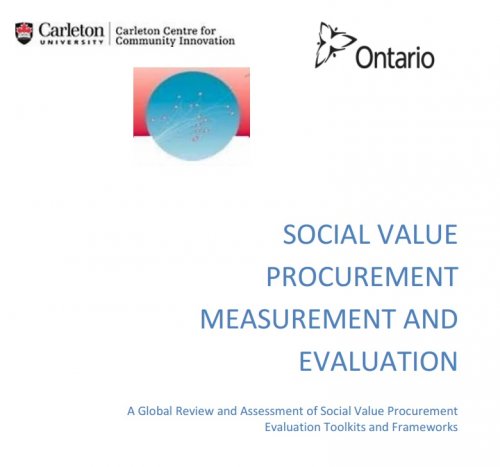This research finds that successful social value procurement (SVP) evaluation frameworks share the following characteristics: a clear articulation of the end-goal, a transparent and consistent process for gathering baseline data that can be aggregated to provide a broader picture of SVP impacts, and a simple, built-for-purpose and proportionate approach that focuses on a small number of measurable outcomes developed through consultation with stakeholders.
Evaluation is key to achieving SVP policy objectives, and the lack of progress on evaluation is a significant barrier to implementation. For contracting authorities, evaluation demonstrates value for money and accountability to the public. For social enterprises, evaluation allows for the articulation of their social value and the promotion of their own internal learning. For the broader procurement marketplace, evaluation contributes to setting new standards and norms and promotes a more competitive and diverse universe of contractors from which to purchase goods and services.
This report reviews and summarizes key themes, challenges and lessons across twenty SVP evaluation toolkits and frameworks that have been developed by regional and national governments around the world.
CCEDNet-Manitoba staff, Sarah Leeson-Klym (Regional Director) and Darcy Penner (Social Enterprise Policy Manager), were contributors to this report as part of the case study on Manitoba Housing
Download Social Procurement Measurement and Evaluation
Table of Contents
Executive Summary: Social Value Procurement Measurement and Evaluation
1. Social Value Procurement: Measurement and Evaluation
Introduction
The Role of Evaluation
Emerging Trends in SVP Evaluation
Who is doing evaluation?
What is evaluated?
How social value is evaluated?
Toolkits and Frameworks for Evaluation
2. Five Case studies in Social Value Procurement Evaluation frameworks
Case Study # 1: Housing Association Charitable Trust (HACT), United Kingdom
Case Study # 2: Scottish Government, United Kingdom
Case Study # 3: Victoria State, Australia Toolkit for Local Governments
Case Study # 4: Anchor Institutions and the Cleveland Greater University Circle Initiative (United States)
Cleveland’s Greater University Circle Initiative (GUCI)
Case Study# 5 – Manitoba Housing (Canada)
3. Common Themes in SVP Evaluation Framework Development
Common themes and outcomes
Barriers and challenges to implementation
Lessons learned
Good practices and principles
Conclusion
Appendix 1: Social Value Procurement Toolkits and Frameworks
Appendix 2: List of interviews
Glossary
References





